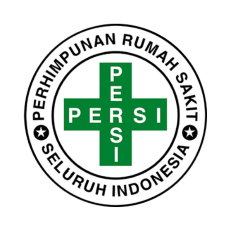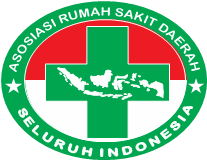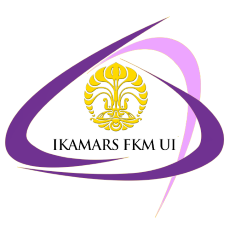Policies
Contents
- Peer Review Process
- Open Access Policy
- Copyright Notice
- Publication Frequency
- Authorship and Plagiarism
Peer Review Process
Articles published in this journal could be in the form of original articles and invited articles (brief reports, case reports, opinion articles, editorials, and correspondence). The journal employs a peer-review mechanism where each submitted article should be anonymously reviewed by expert peers appointed by the editor. All manuscripts will be subject to editorial review and double blind peer reviews. Papers that do not meet the criteria for inclusion or are otherwise inappropriate will be rejected without external review. Manuscripts judged to be appropriate for inclusion in the Jurnal ARSI : Administrasi Rumah Sakit Indonesia are sent for formal review. Typically two experts review each paper, however they may be subjected to more advanced scrutiny if more specialised advice is needed in regards to statistics or techniques. Based on the reviewers comments, the editors will then accept or reject the papers with the following conditions: (1) Accept and publish, with or without editorial revisions, (2) Invite the authors to revise their manuscript and address specific concerns, (3) Reject the article outright, typically on grounds of lack of originality, insufficient conceptual advancements or major technical and/or interpretational problems. Any changes made to the original manuscript will be clearly stated for the authors to review. The authors should carefully examine sentence structure, the completeness and accuracy of the text, references, tables, and graphic contents of the revised manuscript. The Editor-in-Chief will have the final decision regarding acceptance or rejection of manuscripts. The Editorial Board reserves the right to edit articles on all aspects of style, format, and clarity. Manuscripts with excessive errors in any aspect, i.e. spelling or punctuation, will be returned to authors for revision before resubmission or may be rejected entirely.
The Jurnal ARSI : Administrasi Rumah Sakit Indonesia welcomes recommendations from reviewers regarding edits to prospective manuscripts, however in the event of conflicting advice from reviewers, the editors will make a final decision on the course of action. Editors will evaluate the reports from each reviewer, relevant comments made by the authors, and any other information that may not be available to either party before reaching a decision. The Jurnal ARSI : Administrasi Rumah Sakit Indonesia primary responsibilities are to our readers and the scientific community at large, and in deciding how best to serve them we must assess the validity and reliability of each paper against the many others also under consideration. We may return to reviewers for further advice, particularly in cases where they disagree with each other, or where the authors believe they have been misunderstood on certain points. Therefore reviewers should be willing to provide follow-up advice when requested. Editors are aware that reviewers may be reluctant to be drawn into prolonged disputes and will keep consultations to the minimum we judge necessary to provide a fair hearing for the authors. When reviewers agree to assess a paper, the editors consider this as a commitment to review subsequent revisions if necessary and the editors will not resubmit a paper back to the reviewers if it appears that the authors have not made a serious attempt to address the initial concerns. The Jurnal ARSI : Administrasi Rumah Sakit Indonesia takes reviewers' feedback and criticisms seriously, in particular editors are very reluctant to disregard technical criticisms. In cases where one reviewer alone opposes publication, editors may consult the other reviewers as to whether he or she is applying an unduly critical standard. Editors may occasionally bring in additional reviewers to resolve disputes however we prefer to avoid doing so unless there is a specific issue, for example a specialist technical problem.
Open Access Policy
Jurnal ARSI : Administrasi Rumah Sakit Indonesia is an open-access journal which provides immediate, worldwide, barrier-free access to the full text of all published articles with no access charge for readers or their institutions, on the principle that making research freely available to the public supports a greater global exchange of knowledge. Readers are entitled to read, download, copy, distribute, print, search, or link to the full texts of all articles in the Jurnal ARSI : Administrasi Rumah Sakit Indonesia.
Copyright Notice
Authors who publish with this journal agree to the following terms:
Author(s) retain copyright of articles published in this journal, with first publication rights granted to Jurnal ARSI : Administrasi Rumah Sakit Indonesia.
Jurnal ARSI : Administrasi Rumah Sakit Indonesia is licenced under a Creative Commons Attribution-NonCommercial License that allows others to remix, adapt, build upon the work non-commercially with an acknowledgment of the works authorship and initial publication in Jurnal ARSI : Administrasi Rumah Sakit Indonesia. The copyrights of all materials published in Jurnal ARSI : Administrasi Rumah Sakit Indonesia will be held by the respective authors. Authors are permitted to copy and redistribute the journal's published version of the work non-commercially (e.g., post it to an institutional repository or publish it in a book), with an acknowledgment of its initial publication in Jurnal ARSI : Administrasi Rumah Sakit Indonesia.
Publication Frequency
This journal is published three times a year, usually in February, June, and October.
Authorship and Plagiarism
Authorship of articles should be limited to those who have contributed sufficiently to take public responsibility for the contents. These contributions include (a) conception and design, analysis and interpretation of data, or both; (b) drafting the article or revising it critically for important intellectual content; (c) final approval of the version to be published; and (d) agreement to be accountable for all aspects of the work by ensuring that questions related to the accuracy or integrity of any part of the work are appropriately investigated and resolved. Submission to the Jurnal ARSI : Administrasi Rumah Sakit Indonesia is interpreted by the journal to mean that all the listed authors have agreed with all of the articles content. The corresponding (submitting) author is responsible for having ensured that this agreement has been reached, and for managing all communication between the journal and co-authors before and after publication. Any requests for changes to the author list after submission, such as a change in the order of the authors, or the deletion or addition of authors needs to be accompanied by a letter signed by all original authors. The letter should be scanned and e-mailed to jurnalarsi@gmail.com by the submitting author. The Jurnal ARSI : Administrasi Rumah Sakit Indonesia editors assume that on multi-group collaborations, one member of each collaboration, usually the most senior member of each submitting group has accepted responsibility for the contributions to the manuscript from their team.
It is the responsibility of the corresponding author to ensure that:
- The article is an original work and does not involve fraud, fabrication, or plagiarism.
- The article has not been published previously and is not currently under consideration for publication elsewhere. If accepted by the Jurnal ARSI : Administrasi Rumah Sakit Indonesia, the article will not be submitted for publication to any other journal.
- The article contains no defamatory or unlawful statements and does not contain any materials that infringe upon individual privacy, proprietary rights, or any statutory copyright.
- They have written permission from owners for any excerpts from copyrighted works that are included and have credited the sources from where they were obtained.
- All authors have made significant contributions to the study including the conception and design of the article, the analysis of the data, and the writing of the manuscript.
- All authors have reviewed the manuscript, take responsibility for its content and approve its publication.
- All authors are aware of and agree to the terms of this publishing agreement.
Every article submitted to the Jurnal ARSI : Administrasi Rumah Sakit Indonesia is screened by Turnitin software, with a maximum similarity of 20%. If the article has a more than 20% similarity level, the author will be asked to make revisions first and resubmit the revised article.







